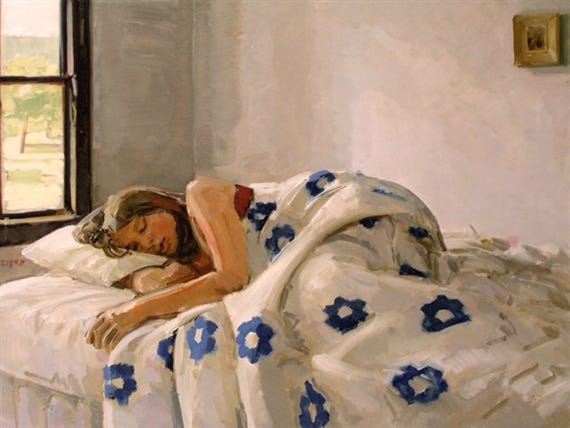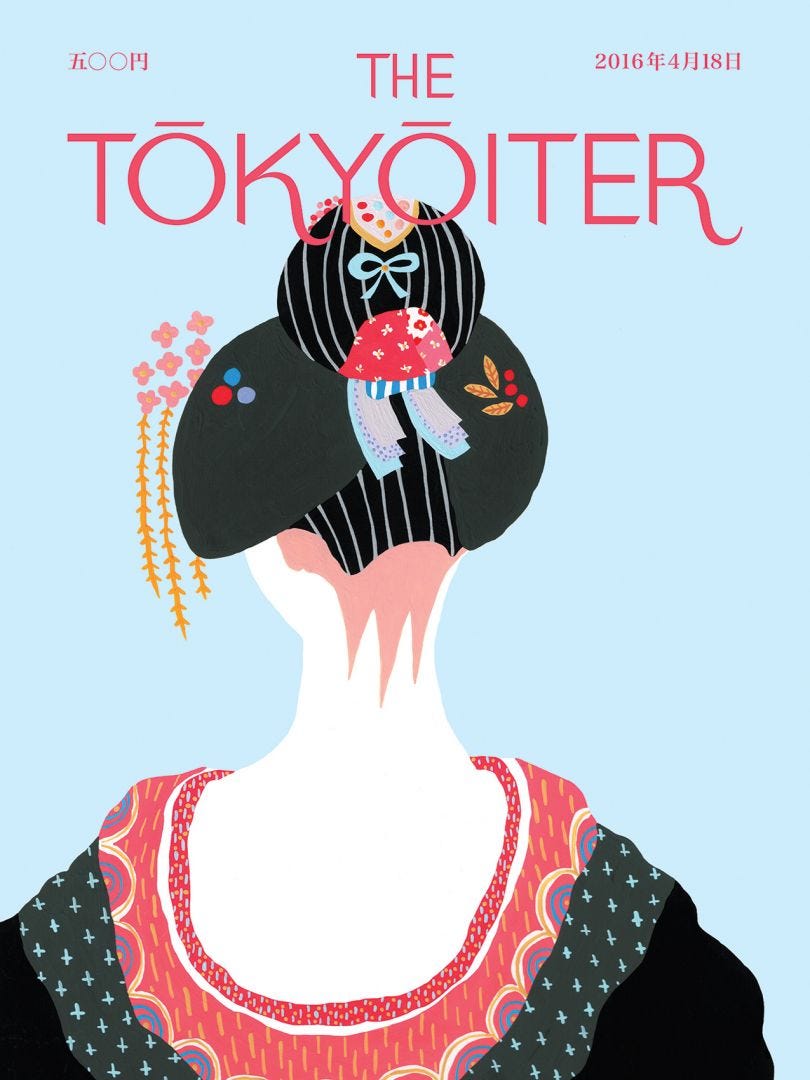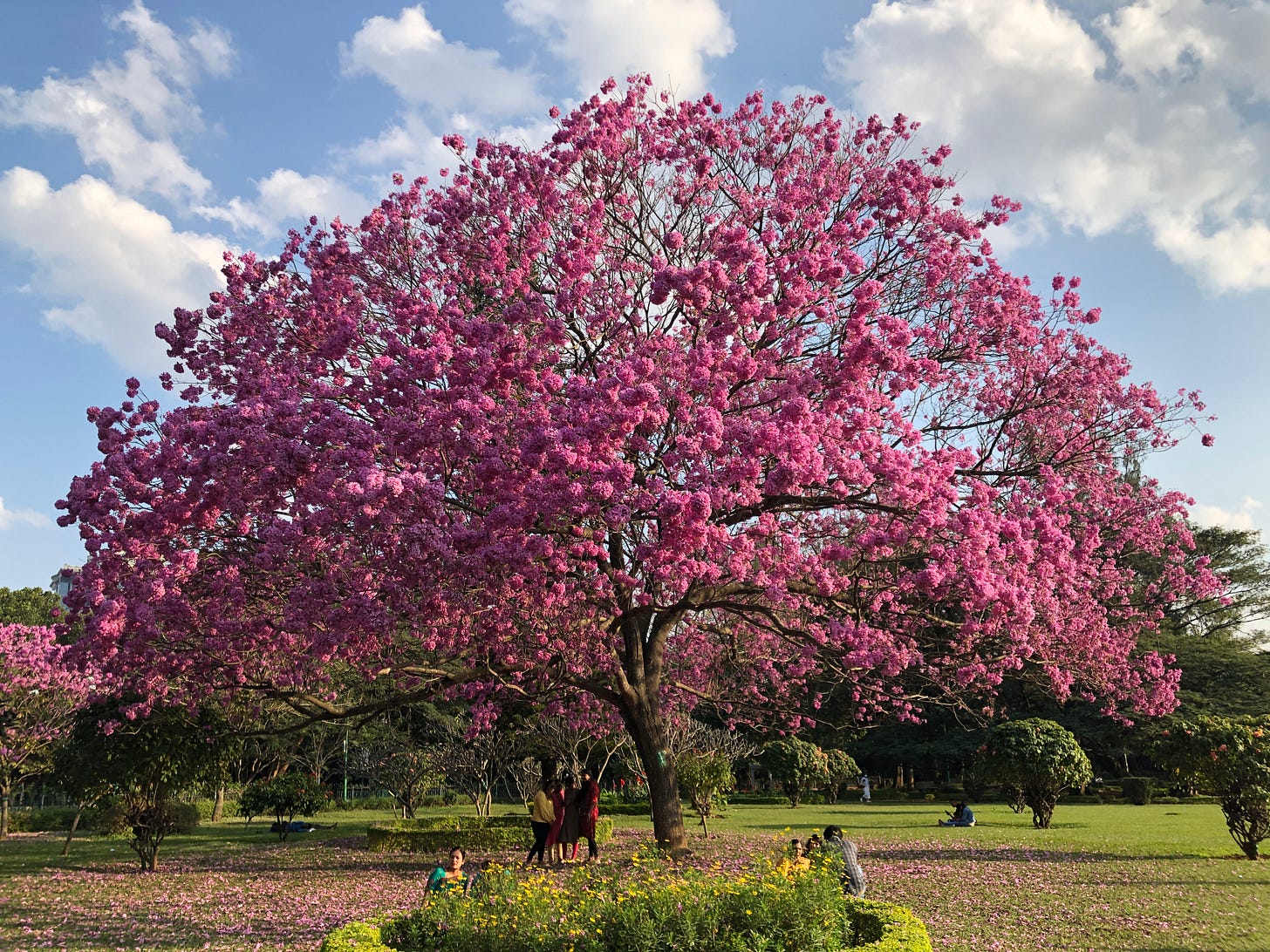#179: Poetry on pain and the body
Dear reader,
In the past week, it seems like the virus has just spread to everyone. Everybody I’m speaking to has COVID/is recovering/is in isolation. I’ve been avoiding the news, and trying to hold on to the image of the pink tabebuia trees in Cubbon Park that filled my heart with a sense of hope and calm.
I managed to sprain my ankle soon after witnessing this beauty, and have been hobbling around since. But the bedrest has helped me get back to doodling in a big way. I’m falling in love with the Ultra Fine Tip Sharpie (how did I never know it exists?), obsessively doodling on clouds, making comics about mundane observations, and making time for myself in an enforced way.

I’ve also been hosting virtual art parties over the weekends, where we gather for an hour or two on Google Meet, and just make art, wherever we are. I’ve been waiting for the weekend lockdown for these sessions because it feels like the best way to be vulnerable and inspired simultaneously, and I’m feeling a sense of flow like never before.
Thank you to everybody who has been a part so far. For anyone interested, please do join us for the next two sessions on Saturday and Sunday, 11am IST. We might even have some surprise musicians serenading us :)
Poetry Corner
I’ve been dwelling on changes/deterioration of the body, on health and the way pain works this past week. I found some poems that spoke to me on the subject:

1. I Thought I Could Not Be Hurt by Sylvia Plath
I thought that I could not be hurt;
I thought that I must surely be
impervious to suffering–
immune to mental pain
or agony.
My world was warm with April sun
my thoughts were spangled green and gold;
my soul filled up with joy, yet felt
the sharp, sweet pain that only joy
can hold.
My spirit soared above the gulls
that, swooping breathlessly so high
o'erhead, now seem to brush their whirring
wings against the blue roof of
the sky.
(How frail the human heart must be–
a throbbing pulse, a trembling thing–
a fragile, shining instrument
of crystal, which can either weep,
or sing.)
Then, suddenly my world turned gray,
and darkness wiped aside my joy.
A dull and aching void was left
where careless hands had reached out to
destroy
my silver web of happiness.
The hands then stopped in wonderment,
for, loving me, they wept to see
the tattered ruins of my firma-
ment.
(How frail the human heart must be–
a mirrored pool of thought. So deep
and tremulous an instrument
of glass that it can either sing,
or weep.)
2. How by Rosemerry Wahtola Trommer
I did not know how beautiful,
grief could be, how generous—
like an improvised cello sonata
in a minor key, a melody
that leaps and wails, unfurls
into harmonic bloom
and makes the whole body
tremble. There is a purity
in it—a sweetness that says
you are here and I will hold you
as long as you meet me.
When others tell me
they wish they could take
some fraction of the pain,
I thank them and I mean it,
but I would not let them
take even the tiniest portion.
To meet grief is to be
deeply steeped in love,
to know the self as wildly alive,
tugged apart by beauty, by loss.
And grief draws its bow
across the strings of the moment—
sonorous and lyrical.
Oh this sensuous rush of the world.
And how is it through tears, through ache,
through breathtaking pain,
I find myself saying thank you?
3. Tortures by Wisława Szymborska
Nothing has changed.
The body is a reservoir of pain;
it has to eat and breathe the air, and sleep;
it has thin skin and the blood is just beneath it;
it has a good supply of teeth and fingernails;
its bones can be broken; its joints can be stretched.
In tortures, all of this is considered.
Nothing has changed.
The body still trembles as it trembled
before Rome was founded and after,
in the twentieth century before and after Christ.
Tortures are just what they were, only the earth has shrunk
and whatever goes on sounds as if it’s just a room away.
Nothing has changed.
Except there are more people,
and new offenses have sprung up beside the old ones—
real, make-believe, short-lived, and nonexistent.
But the cry with which the body answers for them
was, is, and will be a cry of innocence
in keeping with the age-old scale and pitch.
Nothing has changed.
Except perhaps the manners, ceremonies, dances.
The gesture of the hands shielding the head
has nonetheless remained the same.
The body writhes, jerks, and tugs,
falls to the ground when shoved, pulls up its knees,
bruises, swells, drools, and bleeds.
Nothing has changed.
Except the run of rivers,
the shapes of forests, shores, deserts, and glaciers.
The little soul roams among these landscapes,
disappears, returns, draws near, moves away,
evasive and a stranger to itself,
now sure, now uncertain of its own existence,
whereas the body is and is and is
and has nowhere to go.
4. For What Binds Us by Jane Hirshfield
There are names for what binds us:
strong forces, weak forces.
Look around, you can see them:
the skin that forms in a half-empty cup,
nails rusting into the places they join,
joints dovetailed on their own weight.
The way things stay so solidly
wherever they’ve been set down —
and gravity, scientists say, is weak.
And see how the flesh grows back
across a wound, with a great vehemence,
more strong
than the simple, untested surface before.
There’s a name for it on horses,
when it comes back darker and raised: proud flesh,
as all flesh,
is proud of its wounds, wears them
as honors given out after battle,
small triumphs pinned to the chest —
And when two people have loved each other
see how it is like a
scar between their bodies,
stronger, darker, and proud;
how the black cord makes of them a single fabric
that nothing can tear or mend.
5. Invasive by Jim Harrison
Coming out of anesthesia I believed
I had awakened in the wrong body,
and when I returned to my snazzy hotel room
and looked at Architectural Digest
I no longer recognized large parts of the world.
There was a cabin for sale
for seven million dollars, while mine had cost
only forty grand with forty acres. An android
from drugs I understood finally that life
works to no one’s advantage. From dawn
until midnight I put together a jigsaw puzzle
made of ten million pieces of white confetti.
On television I watch the overburdened world
of books and movies, all flickering trash, while outside
cars pass through deep puddles on the street,
the swish and swash of life, patterns of rain
drizzle on the windows, finch yodel and Mexican raven squawk
until I enter the murder of sleep and fresh demons,
one of whom sings in basso profundo Mickey and Sylvia’s
“Love is Strange.” In the bathroom mirror it’s someone else.
Recommended Listening
Links of the Week

The Tokyoiter, a set of gorgeous covers (for an imaginary magazine) that reveal the city’s magic
The Hotel by Tenzing Dakpa (Photographer Tenzing Dakpa constructs a complex emotional landscape that raises questions about our perception of home.)
What are you doing these days to help yourself stay vibrant inside? (Love the answers in the comments :) )
“Poetry helps to humanize us again when we are feeling very lost, gives us gravity, pause, calm, a way to be a part of language again, belong to that realm of interactions, I have felt it bring me back a million times, as all poetry readers do.” -Naomi Shihab Nye, in conversation with the lovely Aekta Khubchandani
Chitthi Exchange was featured in Mid-Day Mumbai (Thanks for the interview, Rahul!)
A new word I learnt today: Fika, which roughly translates from Swedish as drinking coffee, munching sweet treats and chatting (pronounced fee-kah)
Ending this newsletter with some wise words from Haley Nahman, from her newsletter Maybe Baby:
“Sometimes we only need to do something for a while. Journal for a while. Meal plan for a while. Practice an art form for a while, then put it aside for something else, like going on walks. It’s perfectly natural to try things out, see how they feel, and revisit them later when the conditions of our lives call for them. Why not regard our habits and ways of being the same way we regard our other cyclical needs, like sleep, food, activity, and rest? Just as sleep and wakefulness are opposed but equally vital, the opposite of a good habit doesn’t have to be a bad one. It can just be something different, for a different aim, or a different you. In the context of self-improvement, we often use “growth” and “evolution” synonymously, but they’re not the same. Evolution isn’t about achieving our final form, but adapting to our circumstances, ad infinitum.”
-Haley Nahman on Short-term habits
Stay safe and sensible,
Rohini
If you'd like to support this labour of love, you can buy me a coffee, become a paying subscriber or forward this email to friends who might enjoy it.



